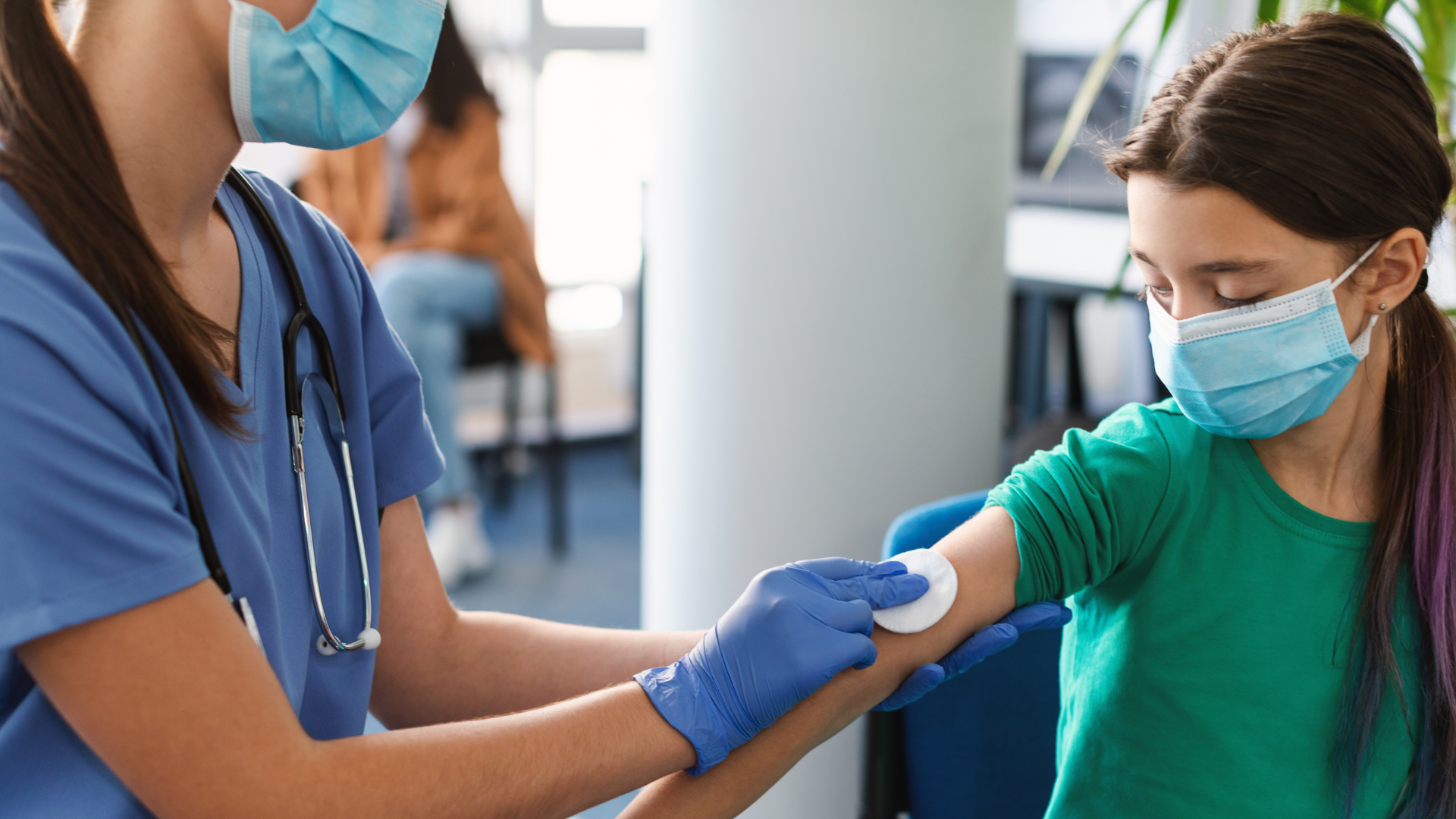
03 May Vaccinate Your Preteens Against HPV: Understanding the Safety and Effectiveness of the HPV Vaccine
If your child is aged between 9 and 12, it’s the perfect time to consider the HPV vaccine. Getting vaccinated against HPV protects your child against the virus and, and can prevent more than 90% of HPV cancers when given at the recommended ages.
The HPV vaccine is both safe and effective, providing essential protection for your preteens.
What is HPV?
Human Papillomavirus, also known as HPV, is a very common virus that can cause different types of cancer. Other types can cause skin warts on the hands, feet and genital areas.
Who gets HPV?
Each year, HPV infects 13 million Americans, and over 46,000 are diagnosed with an HPV-related cancer. It’s likely that many of us will contract HPV at some point in our lives, often unknowingly, particularly if we are not vaccinated.
What happens if you get HPV?
In many cases, the body’s immune system can successfully fight off HPV within two years, and won’t cause any health problems. However, for some individuals, their immune system might not be able to completely eliminate HPV. Over time, this can lead to changes in the cells of the body, which can eventually develop into cancer. It’s important to note that this process often takes years, or even decades, after a person first contracts HPV.
Sometimes, the immune system can control HPV, but not fully get rid of it. In these cases, HPV can remain in the body without causing any noticeable changes to the cells. For some people, HPV can become active again later in life, and they may discover they have HPV without having a new sexual partner.
What are the symptoms of HPV?
HPV often doesn’t cause any symptoms, which is why many people may not know they have it. In some cases, it can cause warts on various parts of the body, depending on the type of HPV. Certain types of HPV can lead to cervical cancer and other types of cancer, which may not show symptoms until they have advanced.
What type of cancer is caused by HPV?
HPV can cause several types of cancer, including cervical cancer, which is the most common, as well as cancers of the vagina, vulva, penis, anus, and oropharynx (the back of the throat, including the base of the tongue and tonsils).
Can HPV be cured?
Currently, there is no cure for HPV. However, it’s important to note that while the virus itself cannot be cured, the abnormal cell changes it can cause can be treated. This is crucial in preventing these changes from developing into cancer.
When should my child receive the HPV Vaccine?
Early protection works best! HPV vaccines are the most effective when administered before the individual is exposed to the virus.
The American Academy of Pediatrics recommends that kids get the HPV vaccine starting at age 9 through 12 years. It is also recommended for older teens who were not vaccinated as preteens.
For preteens ages 9-14, two shots are administered over a 6 to 12 month period. At this age, preteens are able to provide more antibodies after 2 doses of the HPV vaccine. For older teens and young adults ages 15-26, three shots are needed and they are administered over a period of 6 months. For those over the age of 26, it is recommended to consult with your doctor.
Is the HPV vaccine safe for my child?
Absolutely! The HPV vaccine is not only safe but also highly effective. It has been thoroughly evaluated and approved by all government health agencies and leading health organizations worldwide, including the World Health Organization (WHO).
Over 200 million doses of the vaccine have been administered globally, and the evidence shows that it’s extremely safe. Serious side effects are very rare. The most common side effect is a temporary reaction at the injection site, such as a sore arm, or feeling a bit dizzy.
Why is it hard to talk about HPV?
Talking about HPV can be difficult because it’s a sexually transmitted infection, which can be a sensitive topic. However, it’s important to remember that HPV is very common and most people will be exposed to it at some point in their lives. The focus should be on prevention and protection, which is where the HPV vaccine comes in!
Why vaccinate now?
Vaccinating against HPV at a young age, before potential exposure to the virus, is key to preventing HPV-related cancers in the future. The vaccine is most effective when given at ages 11 or 12. It’s a proactive step parents can take now to protect their children’s health in the long term.
Although the vaccine is administered at a preteen age, HPV vaccines offer long-lasting protection, ensuring your child is protected as they grow older. If you haven’t already, speak to your child’s primary care provider and schedule an appointment!

